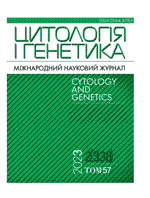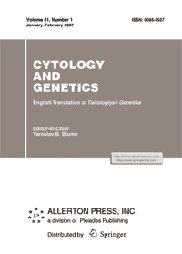In order to investigate the high temperature tolerance of spring canola plants (Brassica napus L.) constitutively expressing cyp11A1 gene which encodes bovine cytochrome P450SCC the growth features were analyzed under short time heat stress (42 ºС) in growth chamber. Earlier it was documented that results of the heat tolerance test positively correlated with improvement of high temperature resistance in field trial. Higher relative water content (by 13 %) and superoxide dismutase (SOD) activity, lower electrolyte leakage (up 1.4-fold) and smaller increase in chlorophyll a and carotenoid contents in cyp11A1 canola leaves in comparison with wild-type plants under stress allowed to conclude cyp11A1 plants are more tolerant to high temperature than the control ones. We suppose that SOD activity increase which revealed in our transgenic canola in normal condition plays the defining role in the biochemical alterations in plant metabolism for the thermotolerance improvement. SOD activity increment could be caused by heterologous cytochrome P450SCC activity which resulted in the superoxide radical formation. Cyp11A1 canola plants might be resistant to the other stress conditions of different origin.
Keywords: Brassica napus, cyp11A1, cytochrome P450SCC, photosynthetic pigments, heat stress, SOD

